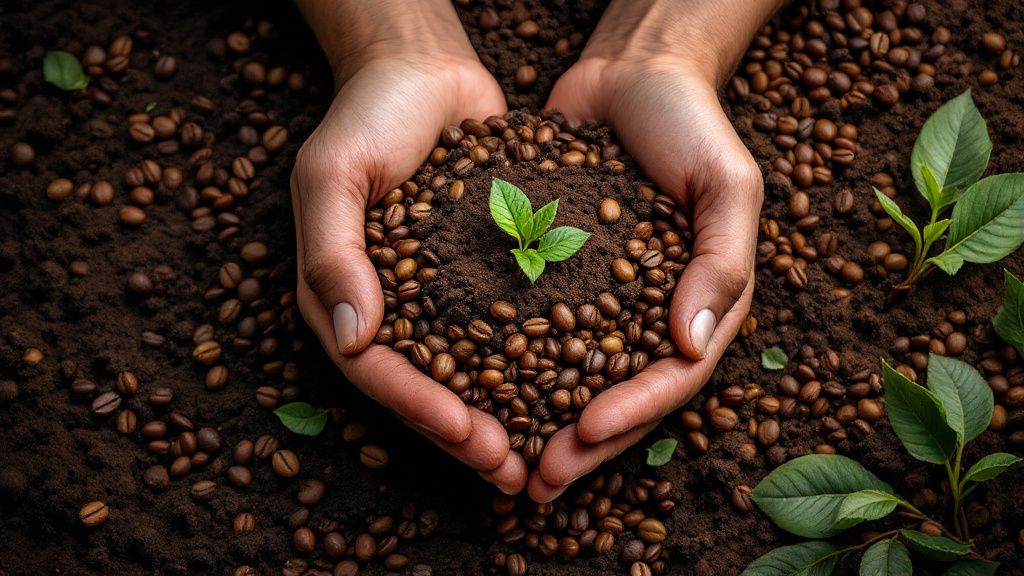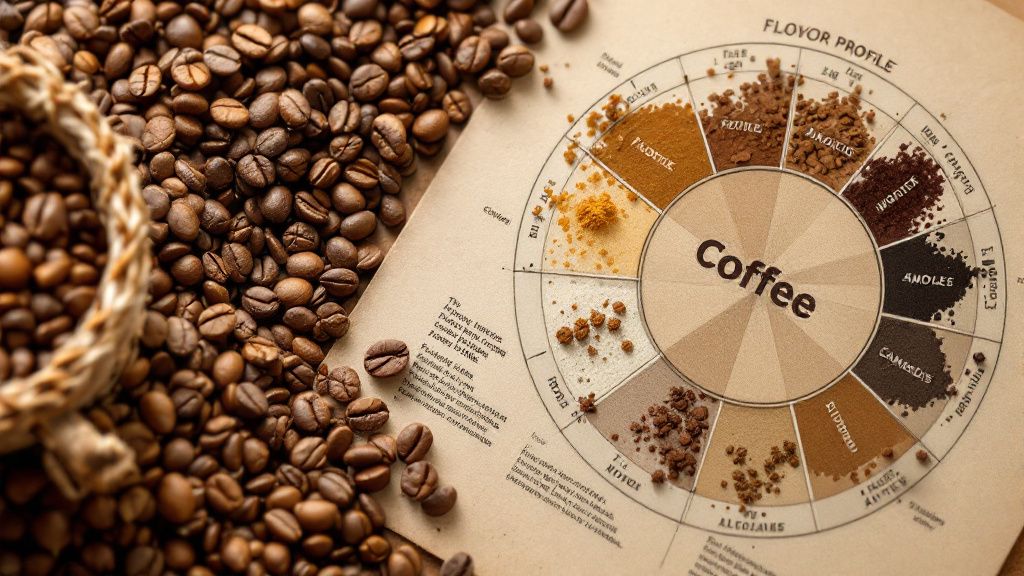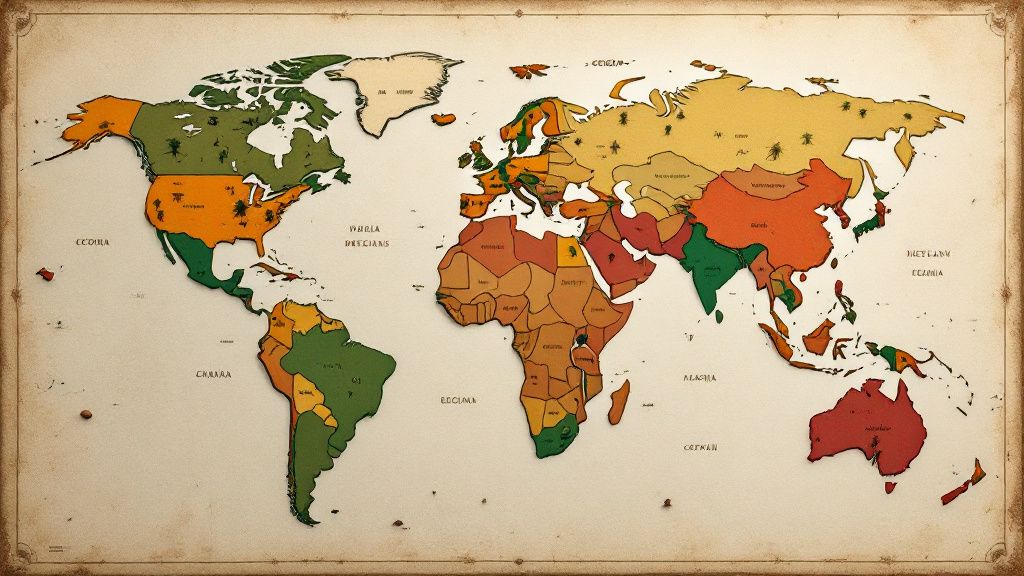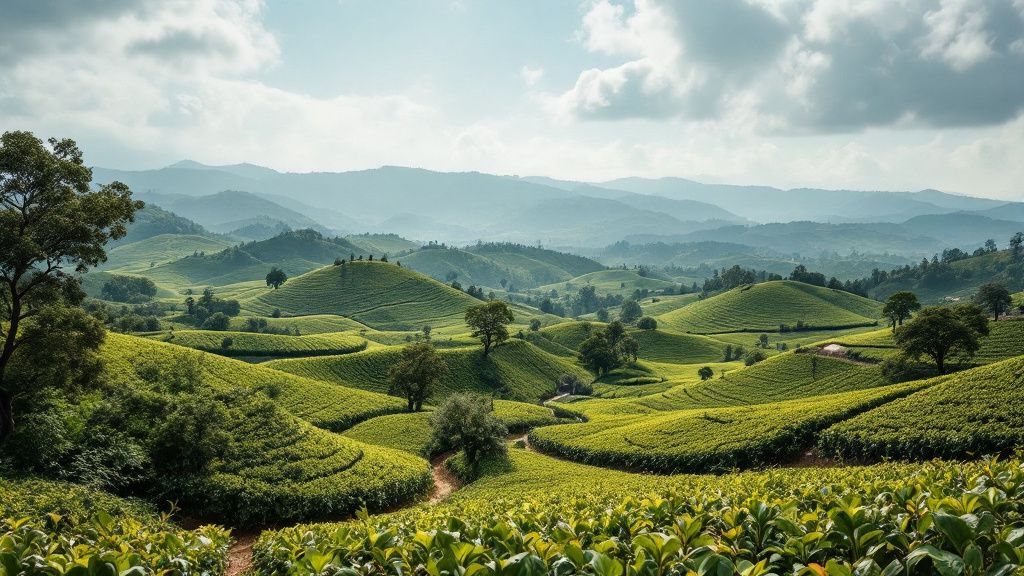What Coffee Would Taste Like If It Had a Terroir Label (And Why That Matters)
Key Takeaways
- Terroir in coffee highlights the influence of climate, soil, and geography on flavor.
- Understanding coffee's origin can deepen appreciation for its unique tasting notes.
- Terroir informs sustainable practices, supporting local farmers and ecosystems.
- Coffee enthusiasts value terroir for elevating the cultural significance of their experience.
- Single-origin coffees allow you to taste the pure expression of a region's characteristics.
Imagine sipping a cup of coffee, where every sensation on your palate tells a unique story of its origin. If coffee had a terroir label, much like wine, you would embark on a sensory journey transcending mere flavor. Terroir would mark each sip with a distinct identity that encapsulates the climate, soil, and geographical conditions that birthed the beans. You'd notice the rich chocolatey undertones of Colombian varieties or the vibrant citrus-like zest of Ethiopian blends because they are reflections of their birthplace. Understanding this label lets you explore coffee tasting notes as intricate narratives of culture and earth, highlighting what makes coffee unique. This concept transforms a simple brew into a tapestry of experiences defined by its coffee flavor profile, celebrating not just the drink itself but the land it comes from. When coffee carries a terroir label, it becomes more than a beverage; it becomes a portal into the diverse world from which it emerges, giving you a newfound appreciation for the artistry and effort involved in each cup.

Understanding Terroir in Coffee Production
Terroir in coffee production represents the profound impact of a region's environment on the taste and quality of the beans. As you delve into this concept, you'll discover how factors such as soil composition, altitude, and microclimate form the cornerstone of the coffee flavor profile. These elements orchestrate a symphony of flavors, seamlessly blending into the rich tapestry of coffee tasting notes that make every cup distinct.
Exploring the nuances of terroir allows you to appreciate the artistry behind what makes coffee unique. It's like savoring a liquid map, where each sip transports you to the lush hills of Costa Rica or the volcanic terrains of Guatemala. Such diversity in flavor is a direct result of how each terroir molds the characteristics of the coffee, resulting in beans that tell the story of their origins.
Looking ahead, the understanding and appreciation of terroir in coffee are expected to evolve as more growers and consumers prioritize environmental and sustainability practices. This shift will likely enrich your coffee-drinking experience, making it more personal and informed. As global palates become more adventurous, recognizing terroir's role will elevate coffee from a daily routine to an exploratory experience, enhancing your connection to the world one cup at a time.

The Science Behind Coffee Flavor Profiles
Understanding the science behind coffee flavor profiles unveils a fascinating chemistry at work. As coffee beans roast and brew, over 800 aromatic compounds are unleashed, creating the diverse and complex tasting experience you enjoy. Acids, sugars, and proteins dance together, each contributing to the body's flavor. It's a delicate balance that defines the uniqueness of each coffee, influenced by its terroir and the meticulous processes it undergoes from farm to cup.
The interplay of these compounds is what creates the vibrant coffee tasting notes you savor. Bright acidity might hint at citrus or berry notes, while a full body can emphasize chocolate or nutty undertones. Such intricate profiles are a testament to what makes coffee unique and allow you to explore a world of flavors with every sip, each telling a different story about the bean's journey.
On one hand, some enthusiasts argue that the scientific approach enhances the clarity of each coffee flavor profile, enabling better appreciation. Others, however, believe it detracts from the natural artistry and element of surprise that terroir imparts. This contrasting perspective fuels a vibrant debate in the coffee community, with both scientific precision and artisanal passion guiding enthusiasts like you to discover what resonates within your cup.

Regional Varieties of Coffee and Their Terroir
Regional varieties of coffee are as diverse and captivating as the lands they come from, each carrying the essence of its unique terroir. In Ethiopia, known as coffee's birthplace, you’ll find beans that often possess floral and fruity notes, capturing the vibrant essence of the country's diverse microclimates. Such distinct coffee flavor profiles are inherent reflections of the very soil, climate, and topography that cradle these beans to perfection.
Exploring the coffee from Colombia reveals a different journey with its rich volcanic soils imparting deep chocolate and nutty undertones. This makes Colombian coffee unique and widely cherished for its balanced acidity and sweetness. Each region within Colombia contributes a slightly different flavor, offering you a range of tasting notes that mirror the country's varied landscapes and cultural richness.
To make the most of exploring coffee's terroir, try selecting single-origin beans, which provide a pure expression of a region's characteristics. This practical approach enables you to trace the journey from bean to brew, immersing yourself in the diverse coffee flavor profiles. By doing so, you nurture an appreciation for the craftsmanship and context behind each regional variety, elevating your coffee experience to a sensory adventure.
Why Terroir Matters for Coffee Drinkers
Understanding why terroir matters for coffee drinkers elevates your appreciation and enjoyment of this beloved beverage. Terroir encapsulates the environmental factors that shape coffee's characteristics, from soil quality to altitude. These elements collectively influence the coffee’s flavor profile, giving you a unique sensory experience that is inherently tied to the land. This connection transforms each sip into a chance to explore the planet’s diversity, one cup at a time.
For you, terroir also represents a deeper connection to sustainable and ethical practices in the coffee industry. By understanding and choosing coffees based on their origin, you support local farmers and contribute to the preservation of traditional farming methods. This awareness not only enhances your personal coffee experience but also promotes a global appreciation for diverse cultures and ecosystems.
Each terroir offers a narrative, a story of the people who cultivate the beans and the landscapes that nurture them. By valuing these stories, you choose to partake in a global journey, savoring each distinct coffee tasting note as a symbol of what makes coffee unique. Terroir is more than a label; it's a guiding principle that enriches your daily coffee ritual and binds you to a worldwide community of coffee lovers.

The Impact of Terroir on Coffee Culture
The impact of terroir on coffee culture is profound, shaping not only the taste but also the social and cultural engagement around coffee. As a coffee aficionado, you’re part of a community that values authentic experiences and genuine connections. Terroir adds depth to these connections, as each region’s coffee tells a story of its environment, creating a shared narrative that resonates globally, bridging diverse backgrounds through a common appreciation for unique flavor profiles.
What most people don’t see about terroir is the dedication and meticulous effort that goes into nurturing coffee plants under specific conditions. This behind-the-scenes insight reveals the passionate work of farmers who adapt techniques to match their region’s microclimate. Their intimate knowledge of the land ensures that each harvest enhances the inherent qualities of the coffee beans, resulting in vibrant coffee tasting notes that intrigue your senses.
Influenced by terroir, the coffee culture is experiencing a renaissance, encouraging you to explore new flavor frontiers by appreciating the complexity behind each cup. It fosters a deeper connection with the origins of your coffee, transforming what might once have been a routine beverage into a purposeful and enriching experience. Thus, the concept of terroir amplifies your role as a discerning coffee drinker, keen to explore the heartfelt stories that each bean brings to life.
Frequently Asked Questions
What is coffee terroir?
Coffee terroir refers to the environmental factors like soil, climate, and geography that influence the characteristics and flavors of coffee beans.
How does terroir affect coffee flavor?
Terroir impacts the coffee flavor by imparting unique tasting notes specific to the region where the coffee is grown.
Can terroir labels change how I buy coffee?
Yes, terroir labels can help you make informed choices about coffee by highlighting the unique characteristics and origins of the beans.
Why is understanding coffee terroir important?
Understanding coffee terroir can enhance your appreciation for the complexity and diversity of coffee flavors and support ethical and sustainable coffee farming practices.
Are single-origin coffees linked to terroir?
Yes, single-origin coffees typically showcase the specific terroir of the region they are sourced from, offering a distinct taste profile.
 Ratio Eight S2
Ratio Eight S2
 Ratio Eight Original
Ratio Eight Original
 Ratio Six
Ratio Six
 Ratio Four
Ratio Four
 Compare Machines
Compare Machines






